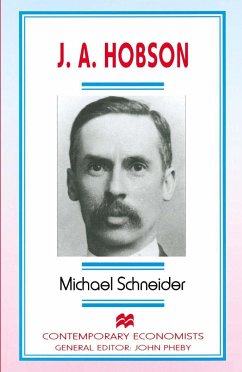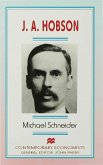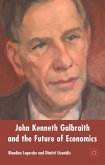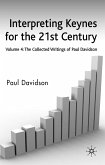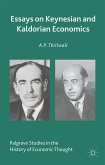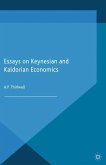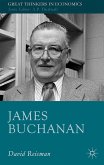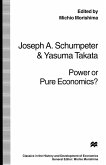The economic theories of the English economist and social scientist J.A. Hobson (1858-1940) were pioneering for their time. This book critically analyses his theories and shows that many of them have contemporary relevance. Hobson is best known by today's economists for his underconsumption theory, which was recognised by Keynes as an important forerunner of The General Theory. Hobson's underconsumption theory is modelled and compared with the economic growth theories of Harrod and Domar. Also included are accounts of Hobson's theories in the areas of welfare economics, income distribution and prices, money and credit, and international economics. The book also outlines Hobson's theory of imperialism, which was addressed to an audience far wider than that of economists, and gained him international fame.
Hinweis: Dieser Artikel kann nur an eine deutsche Lieferadresse ausgeliefert werden.
Hinweis: Dieser Artikel kann nur an eine deutsche Lieferadresse ausgeliefert werden.
'Over many years, Michael Schneider has made himself one of the foremost scholars on that famous economic heretic, J.A. Hobson. Those of us who know of his interest have waited impatiently for his considered views on Hobson. Now we have it in this comprehensive, carefully researched and clearly written account of Hobson, his life and times. Schneider writes with perspective and judgement and clearly, and because of this and his chosen subject the book is an absorbing and rewarding read.' - G.C. Harcourt, University of Cambridge
'This is a scholarly, original and at times provocative book. The definitive study of Hobson the economist.' - J.E. King, La Trobe University
'Michael Schneider develops new insights on Hobson's thinking, based on a careful study of his economic analysis. This is a notably clear account which is a real service to scholarship in this field.'- P.F. Clarke, University of Cambridge
'This is a scholarly, original and at times provocative book. The definitive study of Hobson the economist.' - J.E. King, La Trobe University
'Michael Schneider develops new insights on Hobson's thinking, based on a careful study of his economic analysis. This is a notably clear account which is a real service to scholarship in this field.'- P.F. Clarke, University of Cambridge

